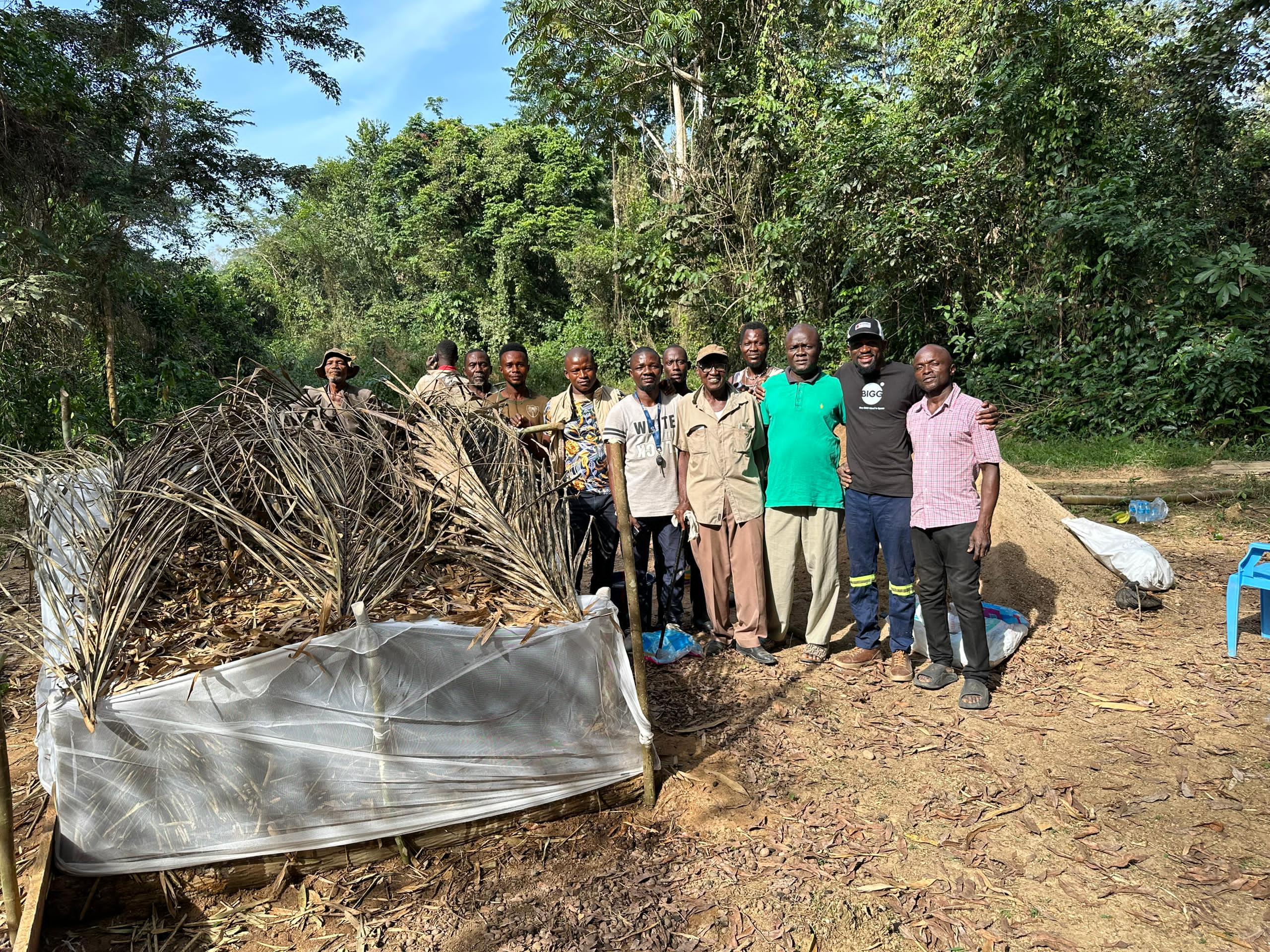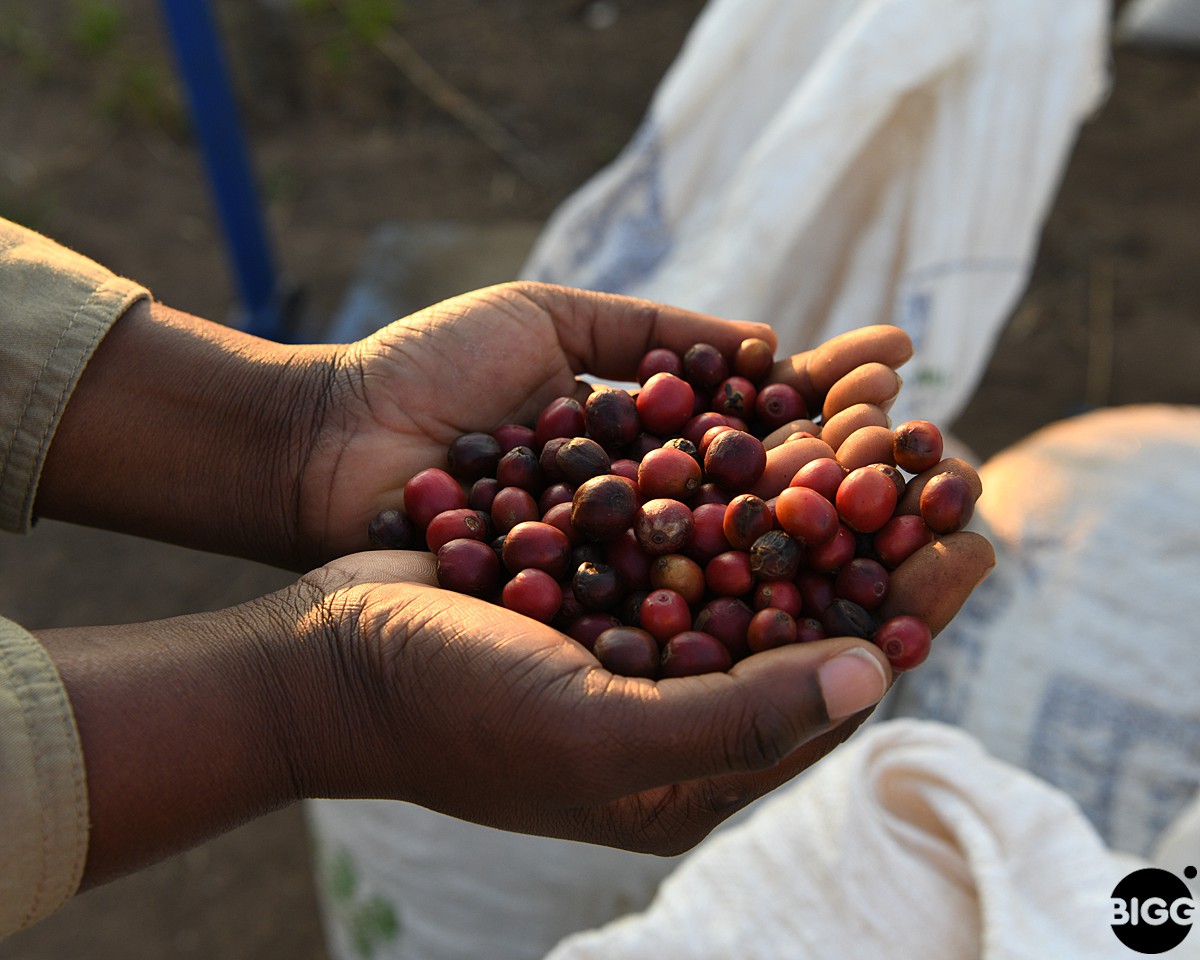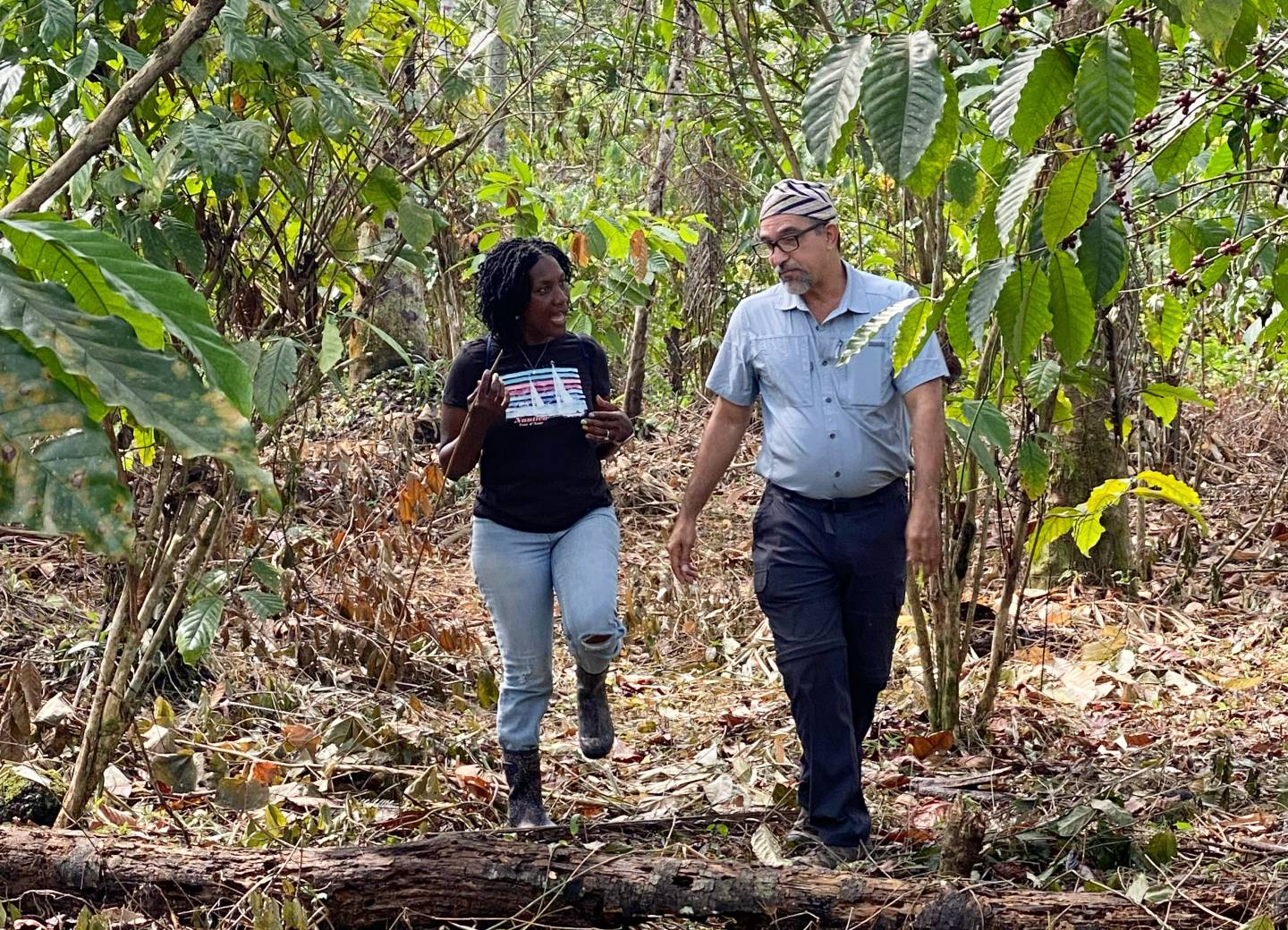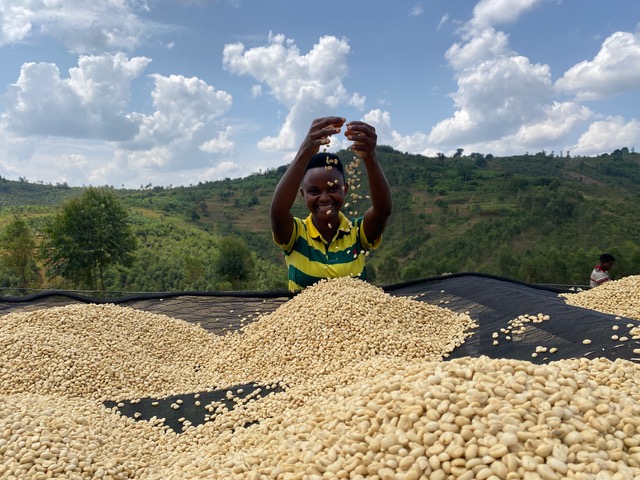By Michelle Fish
It’s been about two years since Kadiatu Allie – we call her Kadie — first invited me, Bob, and our OBIIS team, to learn more about the plight of very small coffee producers in the west African country of Sierra Leone. We wrote about that first visit here. And we have just recently released an episode of our Field Notes DocuSeries on Sierra Leone here.
If you’ve seen that episode, then you know that what we found on the ground was heart-breaking. We walked through village after village in the upcountry near the Liberian border. Everywhere we went, the story was the same. Small producers, with little to no knowledge of how to properly care for and process their coffee, forced to sell it for almost nothing to the local traders. They were not earning enough to keep them on their feet, let alone to compensate them for their labor.
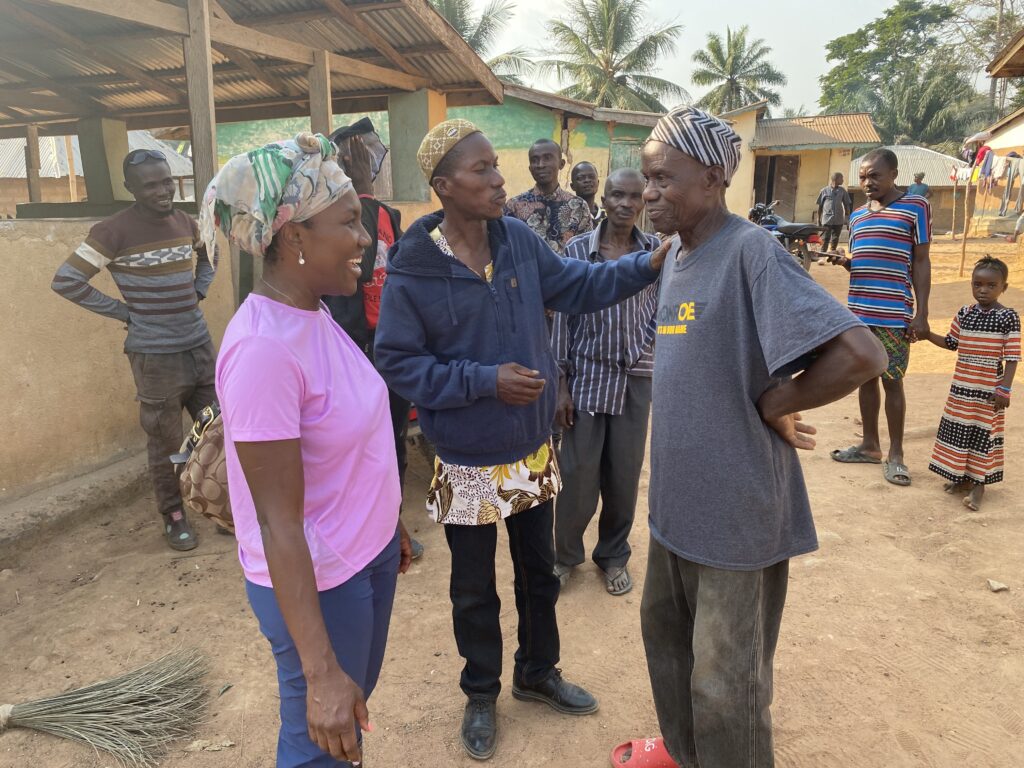
Kadie (left) meeting the village elders.
The coffee they are growing is not exportable to us, by a long shot. It is diseased, bug-infested, and poorly processed. But these are people working very hard under desperate conditions. They are trapped in a downward spiral of more work for less money. And they are living in communities in which the struggle to simply survive is palpable.
Everywhere we went, every single farmer begged us for one thing: access to knowledge. But there is no one coming to help.
No one, that is, until Kadie.
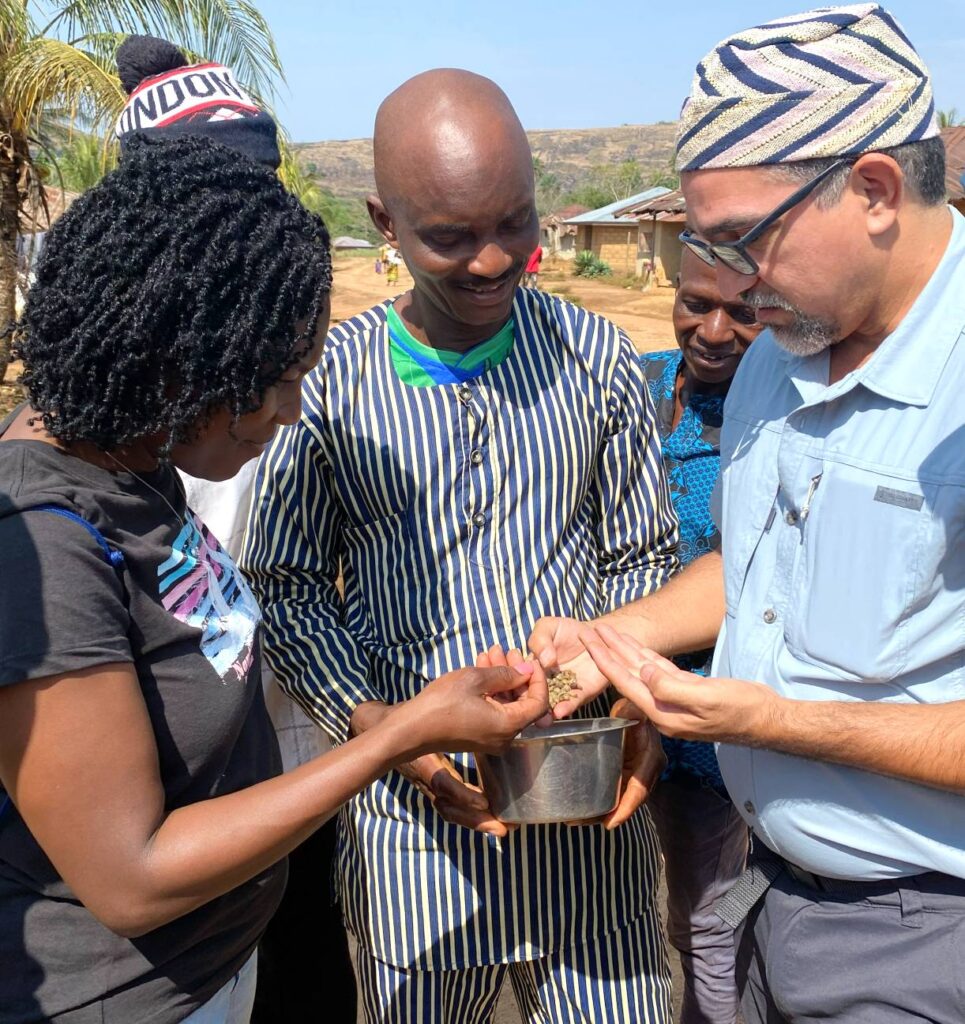
Kadie (left) and Jorge Ferrey (right) examining the coffee.
We closed that episode of Field Notes with a Hail Mary. Kadie got the idea that maybe she could start a model coffee farm that could provide training and support. And if she could get it up and running, maybe she could be the one to organize the small producers so that they could improve their quality. And if they could grow enough coffee at high enough volumes, maybe OBIIS could be there to buy it at a sustainable price.
That’s a lot of maybes. We all know it’s a long shot. But, like we said at the close of that episode, our money is on Kadie.
The last two years have been very busy and very productive. I think it’s about time that we fill you in on what she’s been up to. I’ll give you a hint… the seed of hope that she has planted is sprouting nicely
The Young Woman
But before I do that, the first thing I want to tell you is what happened with the young woman we met with the awful case of mastitis that we described in the episode of Field Notes. I think nothing illustrates more clearly the impact of the civil war and the Ebola epidemic than the plight of that young woman.
She was suffering from what is a very common complication of breast-feeding. And in most places in the world, there would be an old Auntie or a grandmother around to teach her which herbs to take, and how to treat a blocked milk-duct.
But all of that institutional knowledge is gone. And there was no access to health care to take its place.
What started as a blocked milk duct turned into a cyst the size of a tennis ball, red, hot, and oozing puss. One look in her eyes, and I knew how much pain she was in, and how frightened she was. According to our own Dr. Jorge Ferrey, she was within 24-48 hours of succumbing to sceptic shock.
But then, completely by chance, she met us. Jorge gave her an examination, and told her relatives how to help her clean the cyst. Kadie was able to pay for the antibiotic that would tame the infection. And send her own relatives to the nearest big town three hours away to pick it up.
I am very happy and relieved to report that she, and her baby, both survived. I hope that on our next trip to Sierra Leone, we can meet her again, and see how her baby has grown.
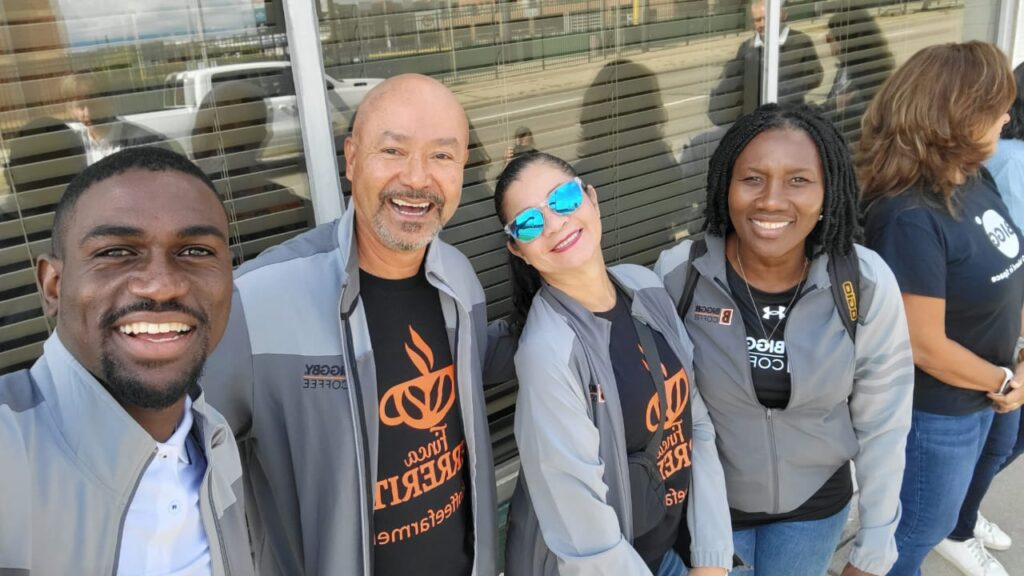
Kadie (second from right) at the 2023 BIGGBY NATION SUMMIT with our Farm-Direct partners Al and Leticia Lopez (center), Miriam Morales (right), and Wana Chipoya (left).
Kadie’s Listening and Learning Tour
We promised Kadie that OBIIS will be there to support her with all the technical expertise and knowledge our team can provide.
So, one of the first things we did after our visit was to invite her to attend the BIGGBY NATION SUMMIT in 2023. There, she met all of our current farm partners. If you want to start a coffee farm, our farm partners are a tremendous resource of knowledge, support, and encouragement.
At the time, Kadie was still US-based, with a big job at multi-national corporation living just outside of Chicago. Her expertise is in finance, not farming. And the idea of starting a coffee farm was daunting.
During the course of the week she spent with us, she got the equivalent of a master class in the business of coffee farming. More importantly, she forged friendships with our partners, and she knows she can call upon any of us at any time when she needs help.
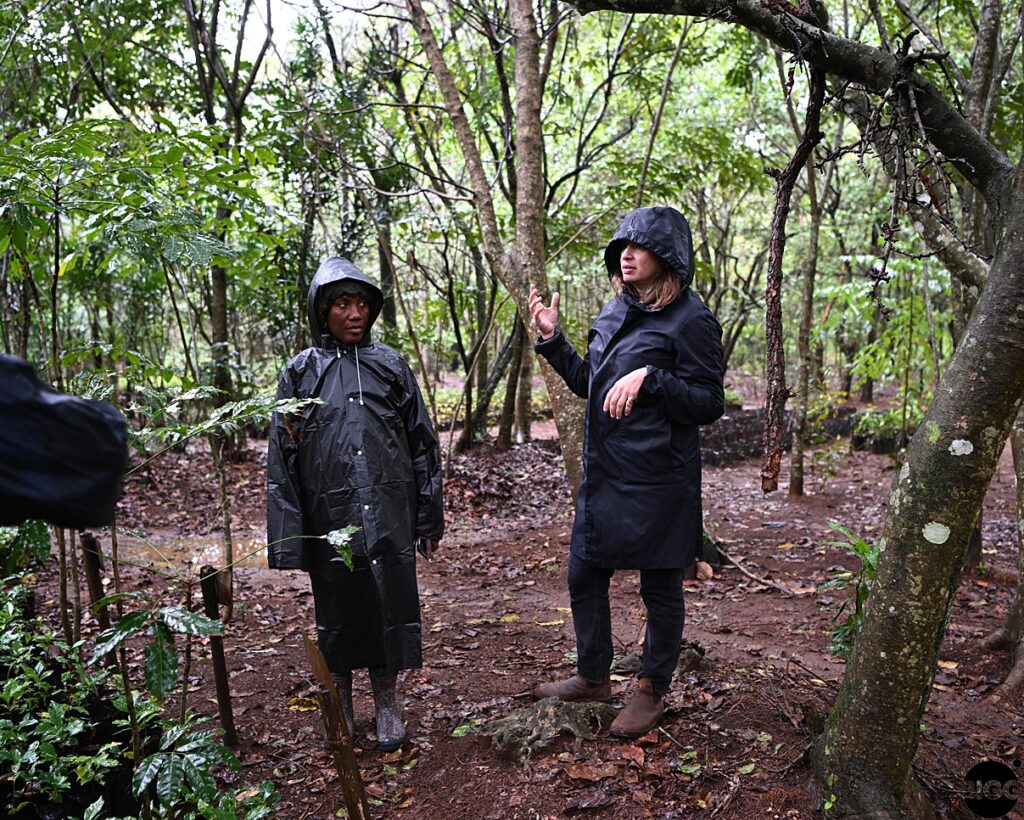
Kadie (left) checking out the coffee nursery at Gorongosa National Park with Sofia Molina (right) in Mozambique.
We also took Kadie with us to Mozambique. We are in the final steps of formalizing a Farm-Direct partnership with the team at the Gorongosa National Park. You can read more about that here.
At Gorongosa, they are starting a coffee industry from the ground up. They are training thousands of very small landholders in how to grow coffee, while simultaneously building out the infrastructure needed to process and export the crop. The scale is different for Kadie, but the challenges are the same. And her time at Gorongosa gave her an insight into what is possible.
Changes in Latitude
As if starting a model coffee farm wasn’t daunting enough, the idea of doing it from 5,000 miles away with only occasional visits seemed downright impossible. But fate had other plans for Kadie.
In December of 2023, she was appointed by the President of Sierra Leone, Brig (Rtd) Julius Maada Bio, to be the Deputy Minister of Finance 1 for the country. It is a very demanding job, and it of course required Kadie to take a leave of absence from her US-based job, and relocate full-time to Freetown, the capital.

Kadie at home in Freetown
Having access to the heart of government is a tremendous boon for Kadie’s project. She is a voice for the plight of coffee farmers in the upcountry, and has the ear of Sierra Leone’s most important government officials.
The Model Farm
After securing a source of financing from friends and family, Kadie was able to purchase 155 acres of land near the villages of Tapoima and Yargolahun in the upcountry. And she has hired three permanent workers to help her clear the brush and prepare the land for coffee.
One of those workers is her cousin, Mustapha Tarawally, a recent graduate of Njala University in Sierra Leone, with a degree in Agricultural Science. She is also getting a lot of help from her brother, Junior, in making sure that the project stays on track.

Preparing the land on the model farm for a coffee nursery.
The land was carefully selected, both for its suitability to coffee farming, and for its proximity to two communities. Part of Kadie’s vision is that the farm will become a hub for the people in the nearby villages. Both creating direct economic opportunities in the form of employment, and providing access to the other crops that Kadie is planning to plant, like beans and peppers, to provide shade for the young coffee trees, and an orchard to provide fruit.
She is also planning to start a chicken farm that will provide manure for her planned compost facilities, and eggs and meat for the farm workers and the surrounding communities.
Her goal is to have diversified streams of income for the farm to help it be more economically sustainable while she waits the four to five years that it takes for a coffee farm to become productive. And providing access to food crops and protein to the surrounding communities is a very welcome bonus.
Planting Seeds
With the help of Wana Chipoya, OBIIS’s Manger of Sustainable Farming and Quality Assurance based in Africa, Kadie was able to secure enough seeds to plant five acres of coffee as the first test run.
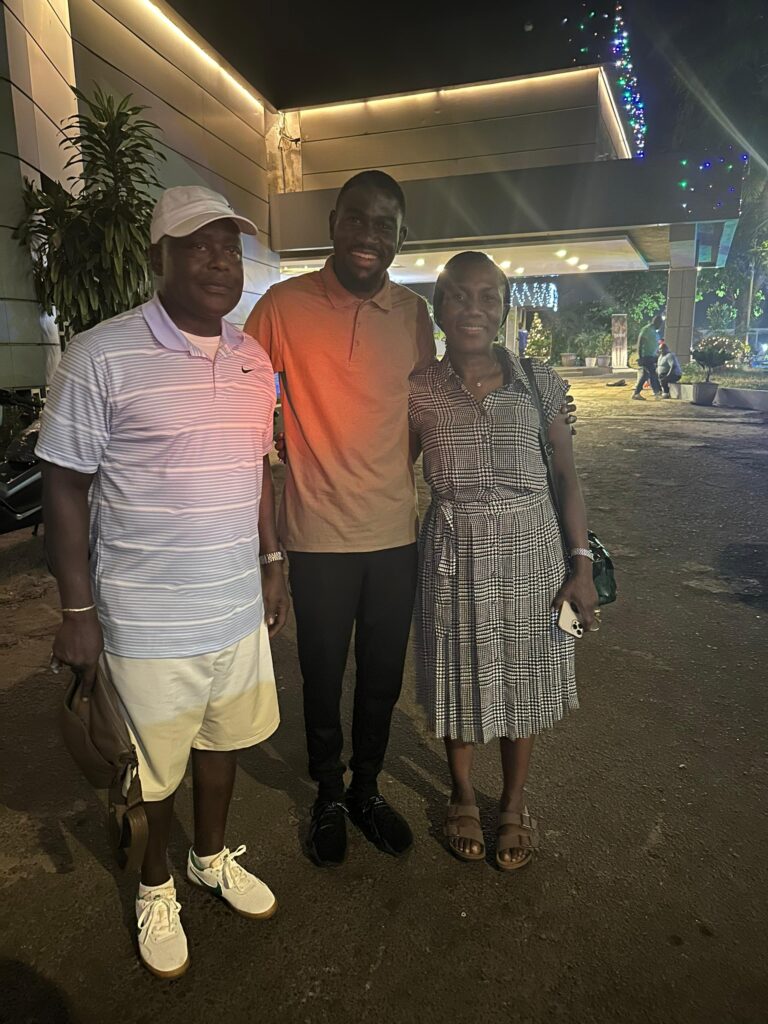
Emmanuel, Kadie’s husband (left), Wana Chipoya (center), and Kadie (right) in Sierra Leone.
After making all kinds of preparations to ensure that the materials needed to start a nursery would be on site, Wana travelled to Sierra Leone in December of 2024 to train Kadie’s staff, and other local farmers, on how to start a nursery so that the coffee gets its best start.
She is planting a variety of Arabica, which is not what has typically been grown in Sierra Leone to date. It’s a bit of a risk, because Arabica has no real track record in Sierra Leonian soils, but all of the testing she has done (guided by Wana and Jorge), indicate that it should work.
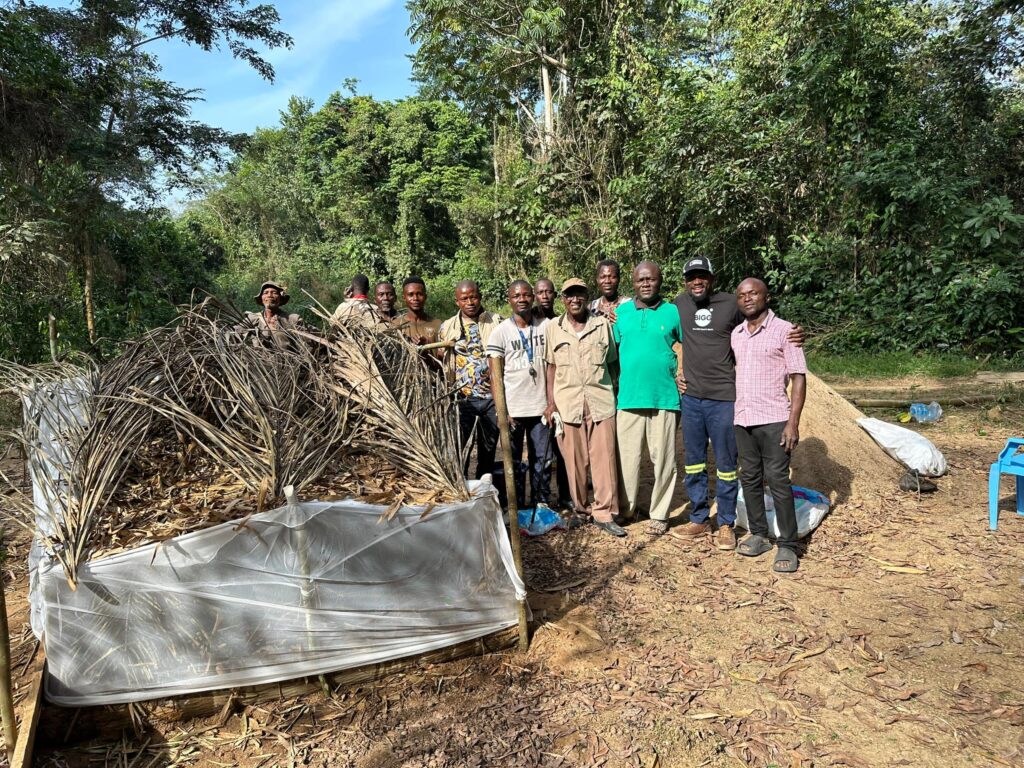
Wana (second from right), with the farmers he trained to build the seed bed on Kadie’s Model Farm.
What’s Next
So, the nursery has been started. And now, we wait the two to two-and-a-half months that it takes for the seeds to germinate. In the meantime, the workers are preparing the soil in the five acres where the initial seedlings will be replanted. And Kadie is finalizing her plans for how the farm will be laid out.
Wana plans on returning in about two months to check on the progress. And Bob and I and the OBIIS team will be heading to Sierra Leone in May to walk the farm, meet the workers, and check in.
It will take at least four years for the seedlings to reach maturity and produce their first commercial crop. There is a lot of other work that will need to happen to help the farm grow, and to continue to train other local farmers.
We said from the start that it’s a long shot. But our money is always on Kadie. And things are, so far, looking very, very bright for the future of coffee in Sierra Leone.

